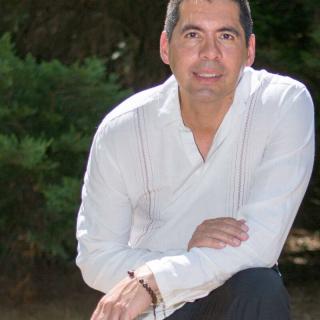


Looking back at fifty-nine to my work as chaplain, minister, and in military, I realize that it is too sobering for any mind to think of things--life, us, and events--as just going on and on. It even feels like we will live forever...well, almost. Perhaps this is why spiritual traditions throughout history desperately felt compelled to say that there is appointed for people to die.
Here, I will speak from the wisdom that many ill and dying patients shared with me over my 15 years as hospice chaplain. Not to mention my own personal loss of a child, the lives and deaths of people that were once strangers only to become dear souls taught me much. (Spiritual Care To Elderly and Dying Loved Ones.)
Working as chaplain was no light matter. For one thing, it involved asking deep questions and soul searching as minister over and over, including the famous, "Why do you want to become a minister in the first place?" But my work with the suffering could not be duplicated in books. And for sure, not all ministers are prepared to handle.
I learned very early in life that life is truly impermanent. To calculate it in mathematical terms, I used the average lifespan here in the US. Prior to the Pandemic it was about 81 for women and 79 for men, according to CDC literature. I decided to round it off to 80, just for the sake of feeling impermanence. That rounded off to 29,200 days from birth. (If I assume I'll live to 80, at 59 I have less than 10,000). This took "years" to a whole new level.
This is exactly what some of my patients told me in so many words. "Life isn't really long at all, Kevin." "Before you know it...", they'd go on to say. Those conversations were like gold to me. There I was, sitting at their home, porch, or at their bedside learning from the most courageous who could almost count their remaining breaths.
I also acquired a true sense of what it means to reflect on life when looking back at life. We all will have regrets. Hopefully not too many or too heavy. But if there is one thing those chaplain-patient conversations revealed was that there is a looking back, and with little space forward. If anything, I learned to recognize the gravity of making major mistakes--as mom and dad would say, "Be careful"-- and, for sure, to resolve matters, if possible and safe to do so.
There was another lesson I learned from these wise souls I served. I recall times when the three of us--patient, the angel of death, and myself--were together. I would sometimes ask, "If you had it to do all over again, what would you do?" I can't think of a one who said they would buy a second house, another car, or even win the lottery. What they said was simple but profound. Some said they wouldn't take life so serious. Others said they'd laugh a little more. Still others would say they'd forgive more often.
My experiences had its benefits but not without a price. The wisdom is rare. I was fortunate and honored to receive it. However, you can't work with the angel of death without it impacting your own life. I feel like I've grown old many a times, and died a few. I know how serious the theme of end of life is and how careful we have to be to say, "I've accepted death."
While I left my role as hospice chap to become a licensed counselor, as minister I developed a program known as Conversing with Death (A Registered Trademark) and written Last breath Awareness to teach clergy, mental health and healthcare professionals, Death Doulas, and other caregiving professionals to gain a felt sense of what it means to live and serve others with impermanence as a guiding principle.